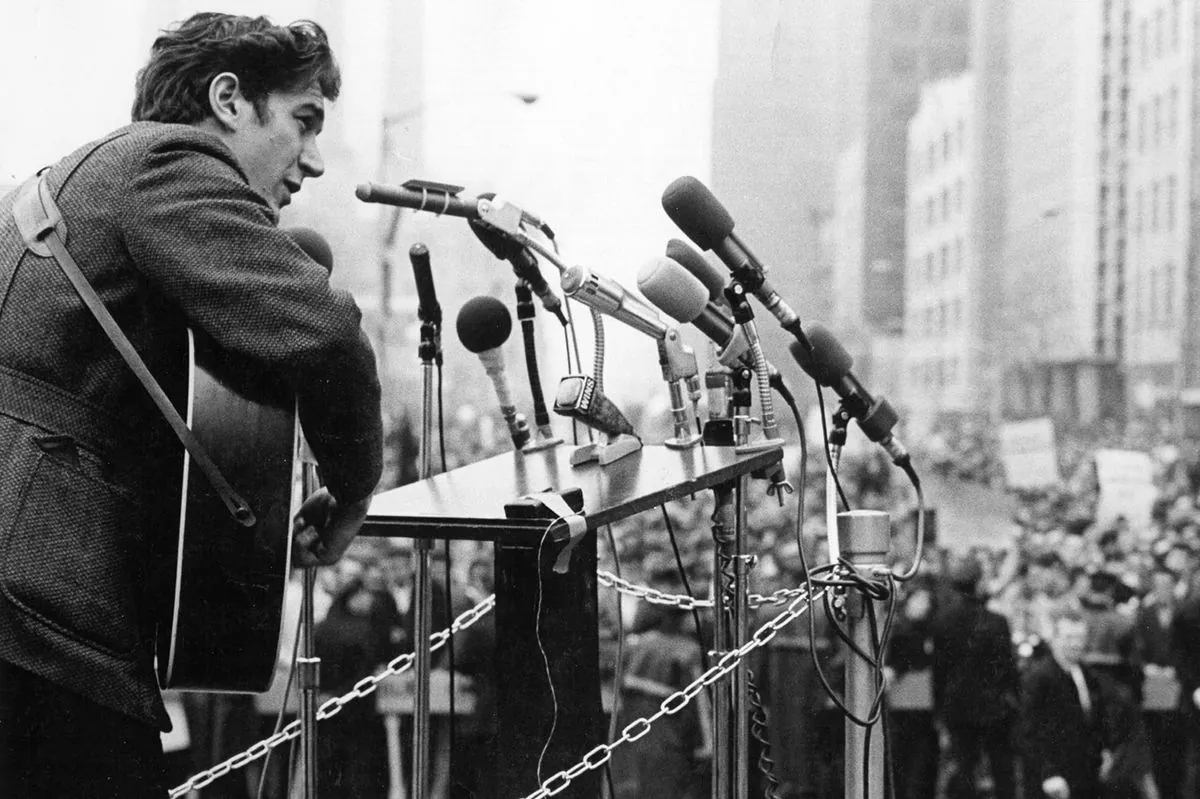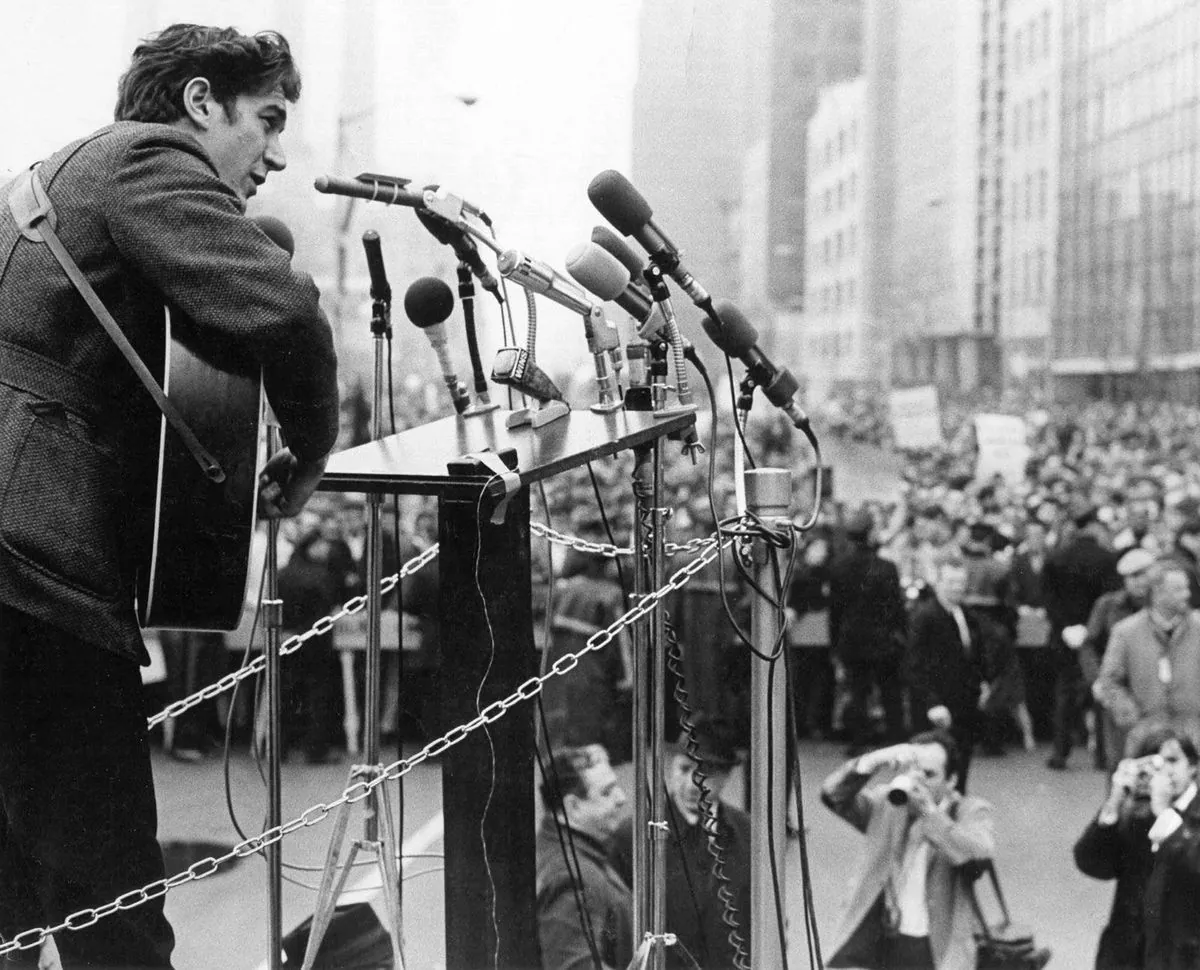Phil Ochs: The Unsung Hero of 1968 Chicago Convention Protests
Folk singer Phil Ochs's pivotal role in the 1968 Democratic Convention protests is explored, from his "Pigasus" stunt to his lasting impact on protest music and politics.

The 1968 Democratic National Convention in Chicago marked a turning point in American politics, with protests against the Vietnam War taking center stage. At the heart of these demonstrations was Phil Ochs, a folk singer whose actions and music became emblematic of the era's unrest.
Born in El Paso, Texas, in 1940, Ochs studied journalism at Ohio State University before embarking on a career as a "topical singer." His first album, "All the News that's Fit to Sing," released in 1964, set the tone for his politically charged music.
Ochs's involvement in the 1968 convention began with a theatrical protest. He and fellow activists brought a 145-pound pig named "Pigasus" to serve as the Yippies' presidential nominee. This stunt led to Ochs's arrest, foreshadowing the tumultuous events to come.
"The pig and seven supporters were quickly placed in a police van and driven off."
As tensions escalated, Ochs continued to play a central role in the protests. On August 27, 1968, he performed at the Chicago Coliseum, rallying demonstrators with his anti-war anthems. His song "The War Is Over" became a rallying cry for those opposing U.S. involvement in Vietnam.

The convention saw violent clashes between protesters and police, with Ochs often at the forefront. He led marches, performed for demonstrators, and even made a peace offering to National Guard troops, urging them to join the protesters' cause.
Ochs's activism extended beyond the 1968 convention. In 1969, he testified at the trial of eight antiwar activists, known as the Chicago Eight. His commitment to social justice and peace remained unwavering throughout his career.
Despite his significant contributions to the protest movement, Ochs never achieved the same level of fame as some of his contemporaries, such as Bob Dylan. However, his impact on protest music and politics has endured. Lady Gaga performed his song "The War Is Over" at the 2016 Democratic Convention, and his lyrics continue to inspire activists and artists today.
Ochs's life was marked by both triumph and tragedy. He struggled with bipolar disorder and alcoholism, and his vocal cords were damaged during a robbery in Africa in 1973. Despite these challenges, he continued to perform and advocate for peace.
In 1975, Ochs participated in a concert celebrating the end of the Vietnam War, sharing the stage with luminaries such as Joan Baez, Harry Belafonte, and Pete Seeger. Tragically, this would be one of his last public performances. On April 9, 1976, at the age of 35, Ochs took his own life.
Nearly five decades after his death, Ochs's legacy lives on. His life has been the subject of multiple biographies and a documentary film. Even sports figures like Kareem Abdul-Jabbar have found inspiration in his lyrics, demonstrating the enduring power of Ochs's words and music.
As we reflect on the events of 1968 and their relevance to today's political landscape, Phil Ochs stands out as a figure whose commitment to justice and peace continues to resonate. His story serves as a reminder of the power of music and activism to shape history and inspire future generations.


































